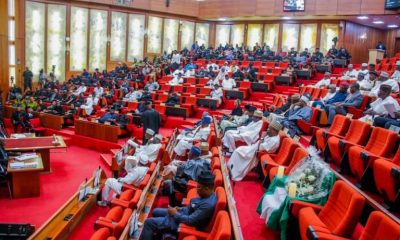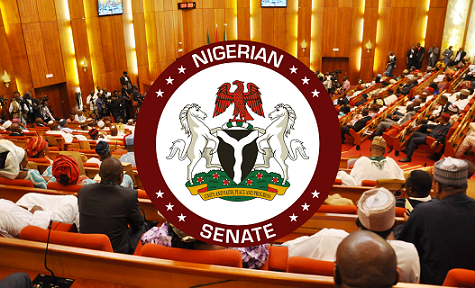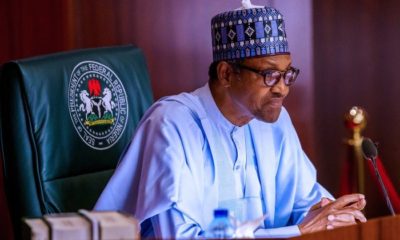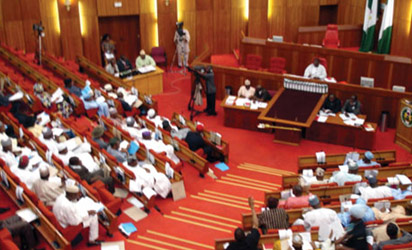News
Senate Receives Constitution Amendment Report
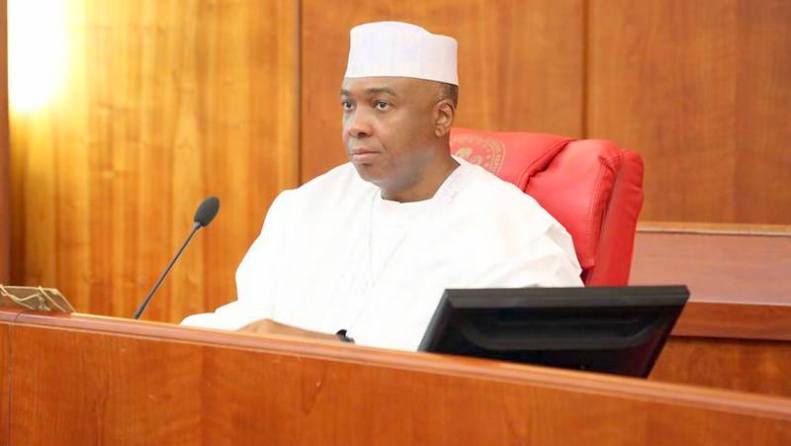
The Senate has received the 33-item report on the fourth alteration of the 1999 Constitution of Nigeria.
The report tabled at the upper legislative chamber proposes amendments which include reducing the powers of the federal government in the exclusive legislative list, financial autonomy for local government and state legislature; and downward review of the minimum age for elective public officers, among others.
The report on constitution amendment bill was presented on Tuesday by the Deputy Senate President, Ike Ekweremadu.
The alteration bill appears to resolve the “not too young to run” agitation, a movement seeking improved access for the Nigerian youth in government.
The bill now proposes 35 as the minimum age for the office of the President and being elected to the Senate; and 25 for the House of Representatives.
But it may serve as disappointment to agitators for restructuring of the federation. While the proposal calls for devolution of power to the states, by reviewing the content of the exclusive list, it fails to review the country’s revenue sharing system and power to control resources in various states.
“This issue that concerns my own people is excluded,” lamented Foster Ogola, PDP-Bayelsa, who made argument for “true federalism and economic restructuring so that everybody can control his resources.”
Also, Adamu Aliero, APC-Kebbi, asked the Senate to step down the item on devolution of power, because it was wrong to give state more powers without greater share of the national revenue.
The bill also seeks constitutional provision to compel president and governors to submit list of ministers and commissioners respectively, with portfolios and 35 per cent affirmative action for women, within 30 days of inauguration.
But the part on 35 per cent affirmative action for women was challenged by Danjuma Goje, APC-Gombe.
“In some states, you can get many women professors and technocrats, but in some states, you cannot,” Mr. Goje said, adding that the Senate should allow the lawmakers to make further consultations before voting on the provision for affirmative action for women.
But Binta Masi, APC-Adamawa, countered Mr. Goje, urging his colleagues to sustain the item in the alteration bill.
“There is no part of this country where we cannot find women for public offices,” further argued Peter Nwaoboshi, PDP-Delta.
The bill also seeks to ensure that minister for the Federal Capital Territory is appointed from one of the six area councils that constitute Abuja, so that that FCT will be represented in the Federal Executive Council.
In seeking autonomy for local government areas, it proposes that only democratically elected councils can directly receive allocations from the federation accounts. In effect, the bill intends to abrogate state-LG joint-account system.
In the circumstance of unelected council, the bill calls for no allocation to such local council.
Originally, Mr. Ekweremadu’s report had 32 items. But Dino Melaye, APC-Kogi, added the 33rd item: proposal that the Independent National Electoral Commission should conduct local government elections.
“How do we speak of local government autonomy, without addressing the foundation,” argued Mr. Melaye who asked that states be stripped of the power to constitute state electoral commissions to conduct local government elections.
Also, the bill proposes that “anyone who has been sworn in as president or governor to complete the term of the elected president or governor cannot do more than a single term.”
The bill also seeks to obligate the president to address a joint session of the National Assembly once every year on the state of the nation, and also seeks to expand the National Council of State to include the President of the Senate and the Speaker of the House of Representatives.
The Senate is expected to vote on each of the proposals tomorrow, though Kabiru Marafa, APC-Zamfara, and Mr. Goje demanded further consultations with their constituents before taking decision.
They specifically expressed concern over the affirmative action for women proposal.
-

 News5 days ago
News5 days agoFIRAT Offers USD 200,000 SnapGenius Research Facility To Boost Research Excellence In African Universities
-

 News4 days ago
News4 days agoPolice Commence Investigation As Worshiper Mobbed To Death At Osogbo Central Mosque
-
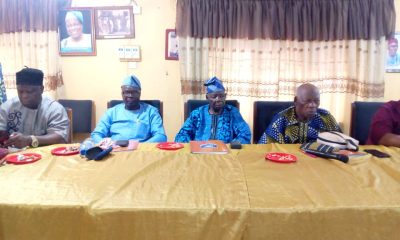
 News5 days ago
News5 days agoPensioners Threaten Legal Action Against States Over Unpaid Pension Increases, Outstanding Entitlements
-

 News5 days ago
News5 days agoAPC Obokun Feud : FAS Sues For Peace, Urges Party Members To Embrace Dialogue



